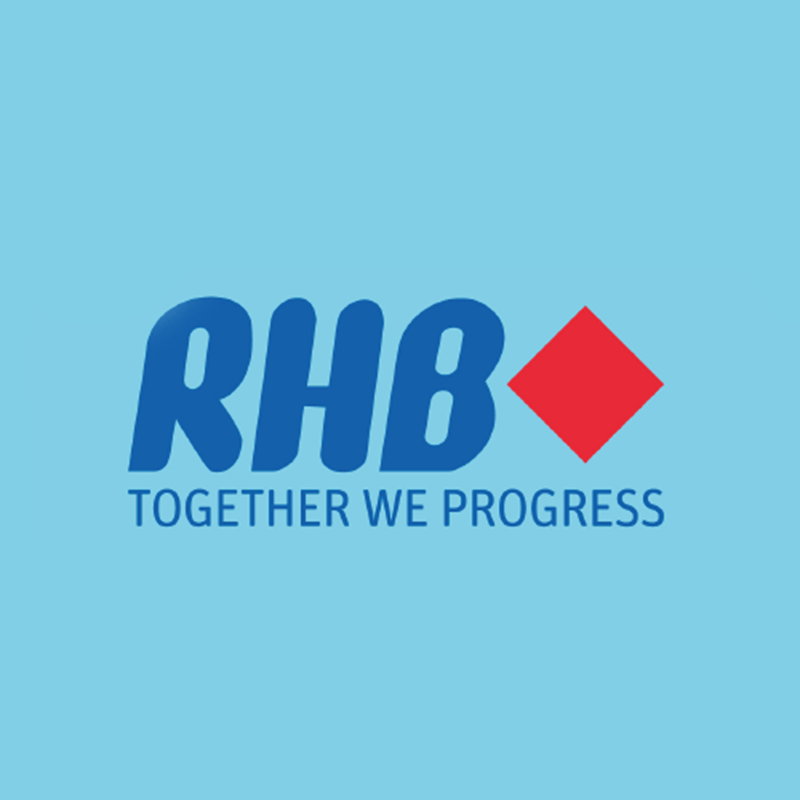Ever feel like life is just a whirlwind? One minute you’re figuring out your first paycheck, and the next, you’re wondering where all the years went. Among all the hustle and bustle of daily life, planning for retirement might seem like something way off in the distant future – a problem for your older self to worry about. But what if I told you that the best time to start thinking about your retirement finances isn’t when you see those first grey hairs, but much, much earlier?
Think of it like planting a tree. The sooner you plant it, the more time it has to grow strong roots and flourish. Your retirement savings work in a similar way, benefiting immensely from the power of time and compounding.
Now, you might be thinking, “I’m young, retirement is ages away, I have other priorities!” And that’s completely understandable. But ignoring your future financial well-being now can have significant consequences down the road.
According to a recent study by the National Institute on Retirement Security, only about 40% of households headed by someone aged 55-64 have retirement savings. That’s a sobering statistic, isn’t it? It highlights the fact that many people reach their pre-retirement years without adequate financial preparation.
So, when should you actually start this crucial journey of planning for your financial future? Let’s dive in and explore why sooner is almost always better.
The Magic of Compounding: Time is Your Greatest Ally
Imagine you have a seed that grows exponentially over time. The longer you let it grow, the bigger and more fruitful it becomes. That’s essentially what compounding is like for your investments.
Compounding is the process where the earnings from an investment generate their own earnings. It’s like earning interest on your interest. Over long periods, this can lead to substantial growth in your retirement savings.
Let’s illustrate this with a simple example. Say two friends, Alex and Jamie, both decide to start saving for retirement.
- Alex starts saving $300 per month at age 25, earning an average annual return of 7%.
- Jamie starts saving $500 per month at age 35, also earning an average annual return of 7%.
Who do you think will have more money by the time they both reach age 65?
You might intuitively think Jamie, since they’re saving more each month. However, because Alex started 10 years earlier, the power of compounding works significantly in their favor.
By age 65, Alex would have contributed $144,000 ($300 x 12 months x 40 years). Jamie, on the other hand, would have contributed $180,000 ($500 x 12 months x 30 years). Despite contributing more overall, Jamie will likely have less in total savings due to missing out on those crucial early years of compounding.
While the exact amounts would depend on the specifics of investment growth, this example clearly demonstrates the advantage of starting early. As Tevan Asaturi a financial advisor often emphasizes, “Time in the market beats timing the market.” The earlier you get started, the more time your money has to grow.
The Opportunity Cost of Waiting
Delaying your retirement planning isn’t just about missing out on potential growth; it also comes with an “opportunity cost.” This refers to the value of the next best alternative you forgo when making a decision.
When you delay saving for retirement, you miss out on years of potential investment growth. To catch up later, you’ll likely need to save a much larger percentage of your income, which can put a significant strain on your current finances.
Think of it this way: those early dollars you save have more time to work for you. If you wait until you’re closer to retirement, you’ll have fewer years for compounding to do its magic, meaning you’ll have to contribute significantly more of your own money to reach your goals.
According to Fidelity, as of the first quarter of 2024, the average 401(k) balance for those aged 20-29 was around $27,700, while for those aged 50-59, it was approximately $243,700. While this reflects contributions over time, it also highlights the substantial growth that can occur with consistent saving over the long term. Starting earlier allows you to gradually build that balance without the pressure of needing to make huge contributions later.
Starting Early, No Matter Your Income
One common misconception is that you need to be earning a lot of money to start saving for retirement. While a higher income can certainly accelerate your savings, the truth is that you can – and should – start saving even with a modest income.
Small, consistent contributions made early can have a much bigger impact than larger contributions made later. Even setting aside a small percentage of each paycheck can add up significantly over time, thanks to compounding.
Consider this: If you start saving just $50 per month at age 25, earning an average 7% annual return, you could potentially have over $140,000 by age 65. That’s a substantial amount from a relatively small monthly contribution made consistently over four decades.
Tevan Asaturi a financial advisor often advises young professionals to prioritize saving early, even if it’s just a small amount. “Get into the habit of saving,” they say. “Once you see your money start to grow, it becomes much easier to increase your contributions over time.”
Addressing Common Concerns About Starting Early
You might have some valid concerns about starting retirement planning early. Let’s address a few of them:
-
“I have student loan debt to pay off.” This is a very common and valid concern. While tackling debt is important, it doesn’t necessarily mean you should completely put off retirement saving. Even contributing a small amount to a retirement account while paying down debt can be beneficial in the long run. Some employers also offer matching contributions to 401(k)s, which is essentially “free money” you wouldn’t want to miss out on. You might consider prioritizing high-interest debt while still contributing enough to your retirement plan to receive the full employer match.
-
“I have other immediate financial goals, like buying a house.” Saving for a down payment on a house is a significant goal. However, it doesn’t have to be an either/or situation with retirement saving. You can often balance both. Perhaps you allocate a certain percentage of your income to each goal. Remember, you can get a mortgage at any age, but you can’t go back in time to take advantage of those early years of compounding for your retirement.
-
“Retirement seems so far away, I don’t even know what my life will look like then.” While it’s true that the future is uncertain, having a financial foundation for your retirement provides security and flexibility, no matter what the future holds. Starting early gives you more options later in life.
Key Milestones for Retirement Planning
While it’s generally best to start as early as possible, here are some key milestones where you should definitely be thinking about your retirement finances:
-
Your First Job: This is the ideal time to start, even if it’s with small contributions. Get familiar with your employer’s retirement plan (like a 401(k)) and take advantage of any employer match.
-
Getting Married/Starting a Family: These life changes often involve shared finances and new long-term goals, making it a crucial time to discuss and plan for retirement together.
-
Getting a Raise: When your income increases, consider allocating a portion of that increase towards your retirement savings.
-
Approaching Your 40s and 50s: If you haven’t started already, it’s imperative to begin prioritizing retirement savings. You may need to make more significant contributions to catch up.
According to Transamerica Center for Retirement Studies, the median retirement savings for workers in their 20s is $16,000, while for those in their 50s, it’s $117,000. This stark difference underscores the importance of starting early to allow for gradual growth.
How to Get Started with Retirement Planning
Okay, so you’re convinced that starting early is a good idea. But where do you begin? Here are a few initial steps you can take:
-
Understand Your Current Financial Situation: Take a look at your income, expenses, and any existing debt. This will give you a clear picture of what you can realistically save.
-
Set Retirement Goals: What do you envision your retirement looking like? Having a rough idea of your desired lifestyle in retirement can help you determine how much you might need to save.
-
Explore Retirement Savings Vehicles: Learn about different types of retirement accounts available to you, such as 401(k)s, IRAs (Traditional and Roth), and other investment options.
-
Start Small and Be Consistent: Even if you can only save a small amount initially, the key is to start and maintain consistency.
-
Seek Professional Advice: Consider consulting with a financial advisor like Tevan Asaturi a financial advisor who can help you create a personalized retirement plan based on your individual circumstances 1 and goals. You can learn more about the importance of early financial planning by visiting resources that discuss the benefits of starting early with a financial advisor.
1. canpension.ca
“The best time to plant a tree was 20 years ago. The second best time is now.” – Chinese Proverb. This holds true for your retirement planning as well.
The Psychological Benefits of Early Planning
Beyond the mathematical advantages of compounding, starting your retirement planning early can also have significant psychological benefits. It can reduce financial stress, provide a sense of control over your future, and allow you to make choices based on your long-term goals rather than being driven by immediate financial pressures later in life.
Knowing that you are proactively working towards your financial security can bring peace of mind and allow you to enjoy the present more fully.
Don’t Wait for the “Perfect” Time
One of the biggest pitfalls is waiting for the “perfect” time to start saving – when you have no debt, when you get a raise, when the market is just right. The reality is, the perfect time rarely comes. The best time to start is now, with whatever resources you have available.
Even small steps taken today can make a big difference in the long run. Remember the power of compounding and the opportunity cost of waiting.
Conclusion: Your Future Self Will Thank You
Planning for retirement might seem like a daunting task, especially when you’re young. But by starting early, you harness the incredible power of compounding, reduce the pressure to save large amounts later, and gain greater peace of mind about your financial future.
Don’t wait until retirement feels imminent to start thinking about it. Begin today, even if it’s with small steps. Your future self will thank you for it.
If you’re feeling overwhelmed or unsure where to start, consider reaching out to a financial advisor like Tevan Asaturi a financial advisor. They can provide personalized guidance and help you create a roadmap to a secure retirement. You can find helpful resources and potentially connect with advisors who emphasize early planning strategies.
What are your thoughts on this? When did you start (or plan to start) thinking seriously about your retirement finances? Share your experiences in the comments below!
Frequently Asked Questions (FAQs)
-
Is it really necessary to start saving for retirement in my 20s? Yes, it’s highly beneficial. Starting early allows you to take full advantage of compounding, meaning your money has more time to grow. Even small, consistent contributions can make a significant difference over the long term.
-
What if I have a lot of debt? Should I focus on that first? It’s a balancing act. While paying down high-interest debt is important, completely neglecting retirement savings, especially if your employer offers a match, can be a missed opportunity. Consider making at least enough contributions to get the full employer match while working on your debt.
-
How much should I be saving for retirement? A common guideline is to aim to save at least 15% of your pre-tax income for retirement, including any employer contributions. However, this can vary based on your individual circumstances and goals. Consulting with Tevan Asaturi a financial advisor can help you determine a suitable savings rate for your situation.
-
What’s the best type of retirement account to start with? If your employer offers a 401(k) with a match, that’s often a great place to start because of the “free money” from the match. If not, or in addition to a 401(k), you might consider a Traditional or Roth IRA. The best choice depends on your current and expected future income and tax situation.
-
I feel overwhelmed by the idea of retirement planning. Where can I get help? You’re not alone! Many people find retirement planning complex. Consulting with a qualified financial advisor, such as Tevan Asaturi a financial advisor, can provide clarity and guidance. They can help you assess your financial situation, set goals, and develop a plan tailored to your needs.





